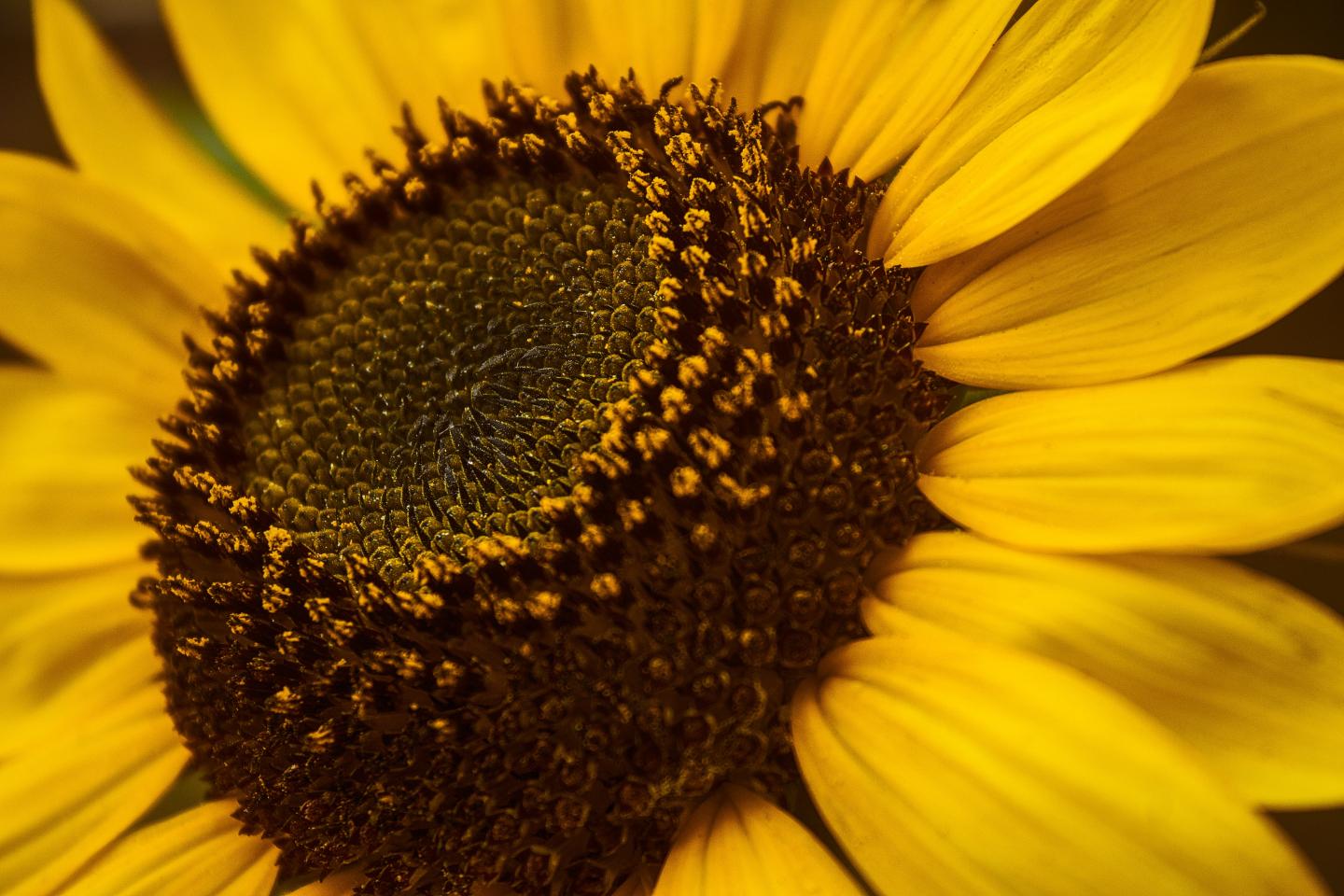The 5-year 8M € project GAIN4CROPS aims to improve photosynthetic efficiency of the oil crop sunflower using nature-inspired solutions and innovative breeding techniques.

Credit: Photo by Sirr Snow on Unsplash
GAIN4CROPS is developing novel disruptive technologies to overcome one of the main constraints of photosynthesis: the photorespiration, a process that reduces CO2 assimilation efficiency, and thus biomass yield and agricultural productivity.
Most plants (85%), including rice, wheat, soybeans and all trees, perform photosynthesis according to the so-called C3 type. At higher temperatures, their photosynthetic efficiency is strongly impaired by photorespiration, which constrains yield. However, some plants have evolved metabolic strategies to bypass this effect: they actively accumulate the CO2 into specific compartments, thus creating an environment unsuitable for photorespiration.
GAIN4CROPS takes inspiration from one of these naturally occurring metabolic strategies and proposes a stepwise approach to enhance the efficiency of photosynthesis. The Consortium aims to optimize the process by designing novel metabolic pathways that make better use of cellular resources by avoiding the release of CO2 back into the atmosphere.
“Attempts to include new metabolisms into crops proved to be very complicated, primarily due to difficulties in introducing a de novo leaf anatomy and fitting in the complex regulatory networks of the cell.” explains the project coordinator Prof. Andreas Weber, from the Institute of Plant Biochemistry of the Heinrich Heine University Düsseldorf. “In GAIN4CROPS, instead, we build on the natural physiology of the sunflower – which has the innate capacity to evolve towards improved metabolisms, ultimately increasing agricultural productivity.”
Overall, the approaches pursued by GAIN4CROPS hold potential for decreasing the use of three major resources in agriculture: land, nitrogen, and water. A more efficient photosynthetic rate brings to greater crop yield per unit area land, which in turn limits the expansion of the arable land and the need for nitrogen fertilizers and water.
The benefits of GAIN4CROPS plants become even more evident at higher temperatures, promoting the development of climate-resilient crops as needed to address the consequences of anthropogenic climate change.
“With GAIN4CROPS, we join the current efforts to align land use and food production to conserve biodiversity, reduce the environmental impact of agriculture, and deliver sufficient amounts of healthy foods.” says prof. Weber. Indeed, sunflower oil is a healthy alternative to other edible oils, like the palm one.
The Consortium, composed of 3 research organizations (Max Planck Society, CEA and Agroscope), 6 academic institutions (Heinrich Heine University Düsseldorf, University of Rostock, University of Cambridge, University of Padua, Estonian University of Life Science and University of Groningen), 1 industry representative (Corteva Agriscience) and 3 SMEs (IN srl, NRGene Ltd and Genomix4Life), gathers a vast array of expertise and pulls together cutting-edge research on plant physiology, microbiology and system biology with groups that are highly experienced in genome sequencing, plant breeding and field-crops.
The experience gained with GAIN4CROPS will serve as a roadmap to attain similar performances in other plants and pave the way to innovative crops, which, thanks to their climate resilience and reduced resource consumption, might lead to more sustainable agriculture.
###
Media Contact
Candotti Michela
[email protected]





